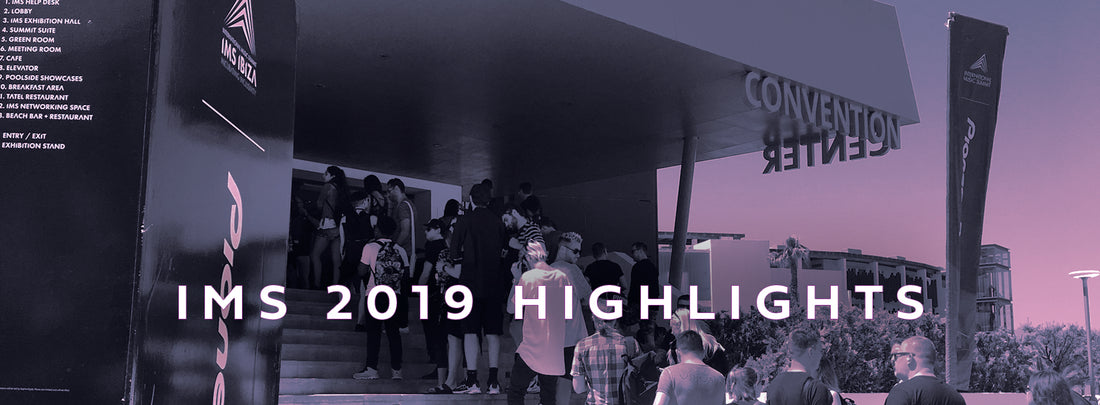IMS Ibiza 2019 took place last week between 22-24 May. The conferences brought together a global audience and panellists to talk about a variety of interesting topics, from production masterclasses, media and digital debates or social issues talks to business and data reports. The 3 day electronic music Summit was held at Hard Rock Hotel and it was a very good opportunity for both music industry experts and fans to get together, network and learn new things from each other’s experiences.

HIGHLIGHTS:
VINYLS VS STREAMING, DOWNLOADING, GOING LAPTOP-FREE.
One of the main important piece of news is that Beatport has launched a new subscription music streaming service for DJs, Beatport LINK. This is very useful for artists looking for a service that streams tracks directly to DJ hardware and software without having to worry about using a laptop.
Which led to a debate between the panellists. Some of them argued that streaming services represent the end of downloads. They were worried that the future streaming brings no economical value to the music industry. Beatport’s response, however, was that “The fact that a new generation prefers not to own anything and is less interested in ownership is not true: vinyl is selling more than ever and people love owning physical music. At the same time, getting rid of laptops only means making things easier. Purchasing digital files instead of vinyls does make a difference to the economical value of this industry but two digital files shouldn’t make any difference.”
DATA: REVOLUTIONISING THE MUSIC INDUSTRY

Elizabeth Muirhead, BMAT VP, talked about how 10 years ago there were no ways to monitor data. No ways to report what the clubs audience wanted . She emphasised how lucky we are that nowadays we have so many streaming devices such as BMAT which report music across televisions, radios, venues and digital services globally and provides metadata which is crucial when it comes to tracks’ ownership and usage rights.
The speakers believe that data plays an important role in an artist’s life. Music publishers are responsible for building a proper data base. Otherwise, the artist won’t get any revenue from streaming services because no one will know who they are. This is the case of a few USA streaming services who have been fined as they were keeping more money from the artists.
Monitoring data should also be a priority for a DJ or producer. As an artist, are you aware of this data and are you using it properly? Are you working on it to get your fans excited, to look for trends in consumption and to plan your activity and marketing strategies? If Spotify data showed that you had a huge fanbase in Rio, wouldn’t you work on getting more gigs there?
RESTORING MINORITIES TO THE DANCEFLOOR

BME / BAME minorities sometimes have the misconception that electronic music if for the “privileged”. So they stick to R&B and Hip Hop because they feel like it’s safer this way, despite being fans of electronic music themselves. The audience wondered why it is so hard to bring people from different backgrounds and minority communities together at parties? What can each of us do to how make it more inclusive for everybody in terms of social or financial aspects.
The suggestion of the Panel to overcoming this problem was promoting events in smaller cities, where minorities and communities are not that large like they are in big cities. Trying to get them to mix together, as they will most likely have no alternative. “Collaborations are key: someone from a white background should collaborate with someone from a minority on a track, event and so on. Minorities also need to do a greater job at promoting their work and getting it out there, they don’t get enough press cover and shoutouts because they are not showcasing their work to anyone.”
A FEW OTHER IMPORTANT KEY TOPICS
Other topics touched upon worth mentioning are social media as a toxic influence for artists, as a lot of times they judge their own professional value based on their Instagram likes and followers. They also monitor their competition too much and they often end up depressed and giving up on their work.
Another interesting subject was the evolution and the difference of the electronic music in former communist Eastern European countries.

In Ukraine there is no money for mainstream names. The country sees this as a good factor as they believe their resident DJS are much better and stronger than international artists. Some nightclubs even control people who want enter and if they don’t know details about the artist playing or their music and the industry they can be refused entry!
DJ and producer Alexandra from Romania thinks young generations there are only hyped on local music and artists. They don’t want to explore more and see what’s beyond that. She thinks Romanians are more reserved when it comes to dancing and exteriorizing their feelings at Romanian parties. “They don’t really feel much freedom do dance in Romania but when they go to Germany to party they’re different, more open. Perhaps because of the harsh communism times, which left marks on some people.” Despite this, a good thing is that there is no curfew so people can party as much as they want and whereas in Europe in general there are strict laws about the clubs closing time”.
Albania is admirable: there is a very small, almost non-existent electronic music scene. This is a big challenge for organisers. The financial and economic impact of such events might be high, but what matters is that the country is brave and wants to start the fertilisation of the electronic music scene.

